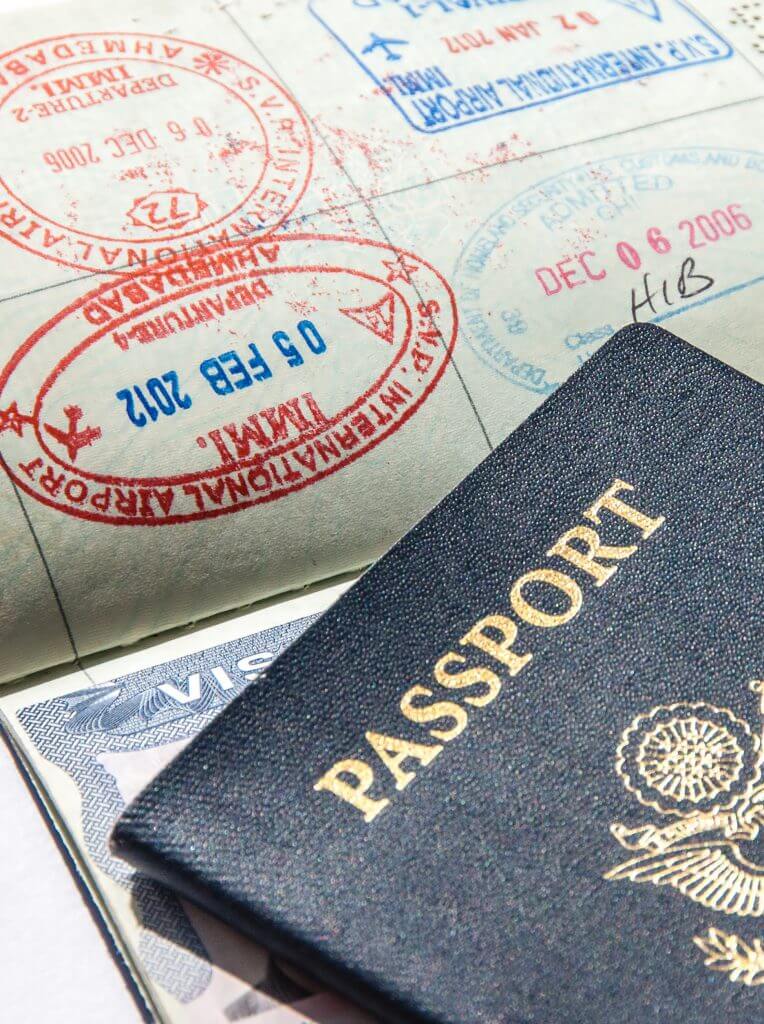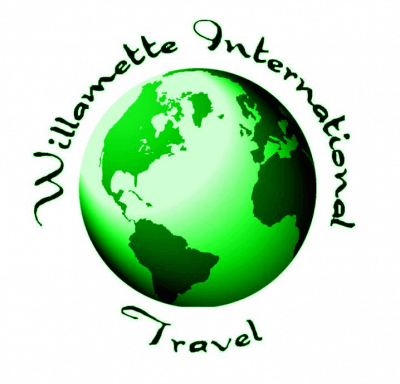
Top Tips From Our Travel Consultants
Our travel professionals offer you some of their favorite travel tips. Whether you’re traveling near or far, we know you have questions. Below you’ll find answers to some commonly asked questions about traveling. Read our staff and client’s travel stories. And become prepared with travel tips.
Traveling to a Non-English Speaking Country
Visiting a country where English is not the primary language can be an adventure. And don’t we travel for the adventure and to explore outside our comfort zone?! Most major cities around the world have people who speak some English. Especially those popular in tourism. You’ll likely find that the more remote you travel, the less English speakers you’ll find.
Don’t let that scare you though. 93% of our communication is nonverbal. It’s amazing how much you can say without using your words. Try using hand gestures or pointing. Getting creative while traveling often creates great memories.
Learning a couple of basic terms in the native language of the country is always a good idea. Not only is it respectful, but knowing the words for things like “bathroom” comes in handy when you’re out-and-about. Plus, the locals will be happy to see that you’re trying.
Get an International Driver’s License Stress Free
Driving in another country can be quite intimidating. We’re happy to answer our client’s questions about obtaining an International Drivers License. Don’t assume the laws are the same here as they are anywhere else.
Money
It’s a good idea to arrive in a country with some local currency. If you haven’t left yet, then your bank or credit union are probably the best places to exchange money.
If you are abroad and in need of local currency, then a great place to head to is an ATM. Check the details of your credit cards for the foreign transaction fees. Some even offer international ATM fee reimbursements.
You can usually find an ATM in any airport and often inside convenience stores (make sure to bring a spare card in case a machine eats yours).Prepaid cards in the local currency are also an excellent way of paying for your expenses. Couples traveling together should have individual cards for some extra peace of mind.
One tip when it comes to tipping abroad: Some restaurants will include a tip automatically. Be sure to check your receipt to avoid tipping twice.
Travel with Common Sense
This is a very important trip tip: Take your brain, street smarts, and intuition with you. Just like you do at home, exercise some precautions while traveling.
Sexual harassment and assault are not limited to one region or culture. It’s important for all travelers to maintain a degree of awareness about behavior, clothing, and overall etiquette.
If you’re not sure, check with your travel consultant. If you’re already on your trip, then talk to your hotel’s staff; they are a good source to learn about neighborhoods you should avoid while exploring. Of course, there are still taboos no matter who you are or where you go.Just like anywhere else, you’ll want to use your common sense while walking around. You may want to err on the side of caution in some countries when it comes to public displays of affection.
Be aware of your surroundings, don’t totally trust strangers, and watch out for pick-pocketers.
You want to consider leaving your valuables tucked away within your accommodations while you explore; your room safe or a safety deposit box are good options.Only take the minimum such as your ID, cash, and key, and cell phone. Most importantly, trust your instincts. If something doesn’t feel right, leave. We want you to explore the world, but please be safe while you do it.

What If?
What If I Miss My Flight?
Worst case: You’ll have to pay the difference between the fare for the flight you missed, and the flight you’re trying to be on.
When all else fails: You may have to purchase a new ticket all together and chalk it up to a lesson learned.
What if the Airline Loses My Luggage?
The idea of an airline losing luggage is one of the bigger causes of travel anxiety out there. The idea is annoying, especially when you just arrived for vacation. If it does happen, we promise it’s not the end of the world. The good news is that odds are your luggage isn’t lost as much as it’s delayed.
Before leaving the airport, the first thing you need to do is contact your airline’s baggage office, located in the baggage claim area. File the lost bag form they give you and ask about their policy for reimbursing you for lost toiletries and other essentials. Also verify how to contact them for follow up and the hours they can be reached. Most bags are recovered and will be delivered to you (at home, a hotel, wherever) at the airline’s expense, so make sure you stay polite. Keep receipts of all replacement items you purchased.
Worst case: About 2% of delayed luggage disappears forever. If your bag vanishes for good, there’s a form you can fill out that itemizes what was inside. Remember not to pack valuables such as cash, jewelry, artwork, or electronics in your checked luggage. The airlines typically don’t reimburse for these items. Reimbursement amounts are usually minimal. Best to have trip insurance as a fall back.
When all else fails: To get reimbursed for covered items, you don’t have to dig for receipts. Just go online and print out the current value of comparable “used” items. Airlines don’t usually reimburse the cost of a brand new item.
What if My Passport is Stolen?
A stolen or lost passport while abroad is no one’s idea of a good time. If your passport is stolen or lost, you’ll need to contact the closest U.S. Embassy for assistance. A police report is often required
Ask for the Consular Section to make your report of what happened. They’ll be able to tell you what requirements are needed and where you can get a new passport photo taken.
Worst case: Your passport was stolen, and without it, you won’t be allowed back into the country. Contact the nearest U.S. embassy or consulate ASAP. With luck, you listened to your travel consultant and either packed a photo-copy or emailed yourself a scanned copy of your passport, which will speed up the process of getting you a new one.
When all else fails: Bust out your emergency stash of cash, which we’re sure you brought along for just such an occasion. This should be able to hold you over until you get your hands on your new credit cards and/or passport.
What if I Need Emergency Medical Help on My Vacation?
Few U.S. based health-insurance plans offer coverage outside the USA. Therefore, trip insurance is a very important component of your travel plans. Willamette Intl Travel ALWAYS recommends trip insurance for international trips to our clients.
We also suggest keeping a letter on you from your primary healthcare provider that explains current medical condition. Along with a list of any medications (including any generic names) you are currently taking.
Worst case: You have no insurance and rely on Medicare or Medicaid. Neither program protects you outside of the U.S. Hopefully you purchased trip insurance as part of your travel reservations. Your travel consultant will be able to help with this.
When all else fails: Get to a doctor or hospital and sort out the payment later. Be prepared to pay for medical treatment with your credit card.
What if I Get Caught in a Natural or Man-Made Disaster?
Unfortunately, serious emergencies can happen anywhere, at any time. It’s a common travel anxiety that seems unrealistic, but it does happen.
It’s a good idea to email your itinerary, including your flight and hotel info, to a friend back home. Register your trip with the State Department so that the government will know where you are and be able to get you to safety. Lastly, be sure to follow any instructions provided by local authorities.
Worst case: If you’re fortunate enough to have life and limb intact, money shouldn’t be a concern. When true emergencies occur, hotels and airlines are generally very sympathetic to travelers. Often they can waive cancellation fees and change restrictions.
When all else fails: Figure out a way to get yourself to a U.S. embassy or consulate which can provide safety and coordinate evacuations. Getting home may take some time, so be patient, and try to console the travelers around you. Who knows, maybe they’ll become a new friend.
6 Tips Before Leaving Home
1. Make your home look lived in. Adjust your blinds to make your house appear occupied. Have your lawn cut if you’re going on a trip longer than a week or two.
2.
Arrange to have your mail held at the Post Office and cancel all deliveries.
3. E-mail a copy of your itinerary to yourself, keep a copy in your luggage and leave a copy with a family member or friend.
4. Put identification both inside and outside all luggage. The name on your luggage should match the name on your airline ticket.
5. Pack charging equipment for your technology in your carry on, including a battery pack. multi-outlet power strips are helpful when needing to recharge an item while in an airport.
6.
Reconfirm your flights 72-hours prior to departure and check in online within 24 hours of flight departure.
How to Pack
- Research the weather forecast for your destinations so you can pack appropriately.
- Combine your luggage with your travel partner’s in order to cut down on checked bags.
- How often will you be navigating airports, rail stations, and hotels? Maybe splitting your one large suitcase into two smaller ones will work better. Look at your itinerary and decide what will work best for you.
- Prescription medication should always be in its original container with the prescription attached. If you don’t have the original bottles then, at the bare minimum, bring your prescription with you. Ideally, your medication should go in your hand luggage, for easy access and safety.
- Include any activities you’ll want for your flight in your carry on. We also suggest packing a change of clothes (including underwear), your medication, and any chargers for your electronics. Maybe pack your swimsuit if you’re going somewhere warm and want to get in the water asap!
5 Tips While Traveling
1.
Keep your wallet with you at all times and avoid carrying large quantities of cash.
2.
Lock valuables either in your room’s safe or the hotel’s safety deposit boxes.
3.
Refrain from making any jokes about security issues. Remarks about bombs or violent action will be taken seriously and in certain cases could lead to an arrest.
4.
Only use recognized ground transportation services. Be wary of solicitors offering “low-cost service”. It may turn out to be unreliable, expensive, and uninsured. Let your Willamette consultant book a transfer for you in advance.
5.
Always carry cash, medicine, and valuables on the plane with you; don’t place in checked luggage. Best practice? Don’t take anything with you that you would be sad to lose.

Passports
The first step in achieving your travel dreams is getting a passport. The U.S. Department of State has a full list of required documents and steps to take.
If you already have one, make sure to check the expiration date.
You’ll need to renew it if the expiration date is within 6-months of your U.S. departure date and your return date. Otherwise, you may be denied entry to your country of choice.
Homeland Security is changing the rules of domestic travel in May 2025.
Make sure you have correct identification before you travel.
Beginning May 2025, Homeland Security will begin enforcing the new Real ID Act which was passed back in 2005. This means that you will need a Real ID compliant driver’s license in order to fly within the United States. You won’t be permitted through the airport security without it or another form of TSA approved identification. Acceptable identification for domestic air travel will include passports, passport cards, enhanced driver’s licenses, military IDs and trusted traveler cards, such as Global Entry. The state of Oregon may not be in compliance with real ID in time, so a trip to the DMV to get a passport card may be a safe backup!
Check your license for one of the symbols below. If you have one then you are good to go, if not, you should check with your state’s DMV.



